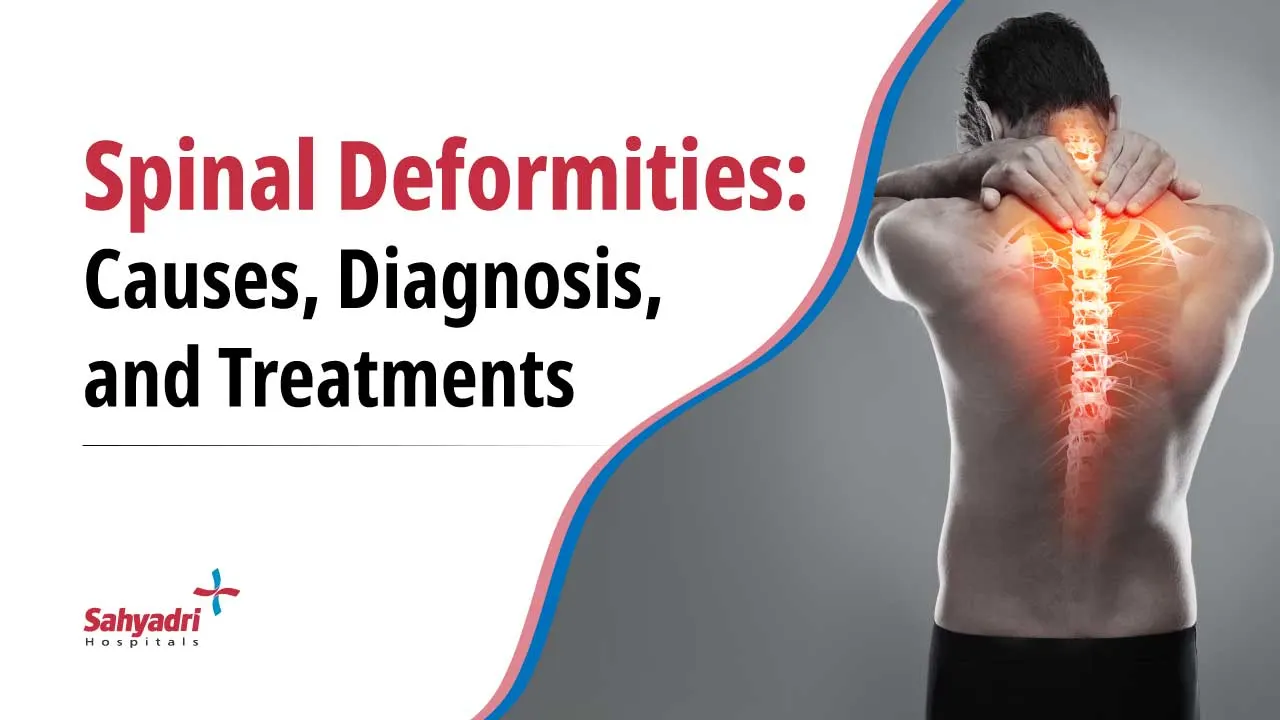Spinal Deformities: Causes, Diagnosis, and Treatments
Do you experience back pain or notice a curvature in your spine? You might be dealing with a spinal deformity. In this article, we will explore the causes, diagnosis, and treatment options for spinal deformities. Understanding these conditions is crucial for early intervention and effective management.

We will provide insights into the different types of spinal deformities, their possible causes, and highlight the importance of seeking professional care. Whether you or your loved ones are affected by a spinal deformity, this article aims to provide information to help you make informed decisions about your health.
Understanding Spinal Deformities
Spinal deformities refer to abnormal curvatures or misalignments of the spine. These conditions can affect people of all ages and may result in pain, limited mobility, and even organ dysfunction.
Maintaining spinal health is essential for overall well-being, as the spine provides structural support and protects the spinal cord. The most common types of spinal deformities include scoliosis, kyphosis, and lordosis, each with distinct characteristics and potential complications. Understanding these conditions is the first step towards effective management and improved quality of life.
Causes of Spinal Deformities
Spinal deformities can have various causes. Some individuals may have a genetic predisposition, meaning certain genes may increase the likelihood of developing a spinal deformity. Others may develop deformities due to developmental issues during childhood and adolescence.
Factors such as injuries, diseases, poor posture, and lack of physical activity can also contribute to the development of spinal deformities. By understanding the causes, individuals can take proactive steps to prevent or manage these conditions effectively.
Also Read : Symptoms of the Weak Nervous System?
Diagnosis of Spinal Deformities
Early diagnosis plays a crucial role in managing spinal deformities. Orthopedic surgeons and neurologists, rely on medical history, physical examinations, and imaging techniques to diagnose and evaluate the severity of spinal deformities.
X-rays, MRI scans, and CT scans provide valuable insights into the structure and alignment of the spine. These diagnostic procedures allow Orthopedics to develop personalized treatment plans based on an individual’s specific needs, ensuring the best possible outcomes.
Discover expert care for the diagnosis and treatment of spinal deformities. Trust in the skill and experience of the best neurosurgeon in Pune.
Common Spinal Deformities
There are several types of spinal deformities, each with its unique characteristics. Scoliosis is characterized by an abnormal sideways curvature of the spine, while kyphosis involves an excessive forward rounding of the upper back.
Lordosis, on the other hand, results in an exaggerated inward curvature of the lower back. These conditions can vary in severity and may require different treatment approaches. Understanding the specific type of spinal deformity one has is vital for effective treatment planning.
Also Read: List of Diseases Affecting Nervous System
Treatment Options
Treatment options for spinal deformities depend on several factors, including the type and severity of the condition. Non-surgical approaches such as bracing, physical therapy, and exercise programs can help alleviate pain and improve mobility in milder cases.
In more severe cases or when non-surgical methods are effective, surgical interventions may be necessary. Surgical procedures, including spinal fusion or corrective surgeries, aim to straighten and stabilize the spine. Rehabilitation and post-treatment care play a vital role in the recovery process, helping patients regain strength, flexibility, and functionality.
Advances in Spinal Deformity Research
Medical research continues to advance our understanding of spinal deformities. Scientists and Orthopedic are constantly exploring new treatment modalities, including minimally invasive surgical techniques and innovative therapies.
These advancements offer hope for improved treatment outcomes, reduced recovery times, and enhanced quality of life for individuals with spinal deformities.
Living with Spinal Deformities
Living with a spinal deformity can be challenging. It’s crucial to prioritize self-care, maintain a healthy lifestyle, and adopt proper posture to manage pain and optimize functionality. Seeking support from Orthopedics, joining support groups, and staying informed about available resources can also contribute to a better quality of life.
Prevention and Maintenance
While not all spinal deformities can be prevented, certain lifestyle choices can help reduce the risk. Maintaining good posture, engaging in regular physical activity, and avoiding excessive strain on the spine are important preventive measures. Regular check-ups with Orthopedics can help identify any potential issues early on, allowing for timely intervention and management.
In Conclusion, Spinal deformities can significantly impact a person’s quality of life, but with early diagnosis and appropriate treatment, individuals can effectively manage their conditions. Understanding the causes, seeking professional care, and adopting preventive measures are essential steps towards maintaining spinal health.
By staying informed and proactive, individuals can make informed decisions about their treatment options and work towards improved mobility, reduced pain, and enhanced overall well-being. If you or someone you know is experiencing symptoms related to spinal deformities, don’t hesitate to reach out to an Orthopedic.
Remember, there is hope for a better future, and with the right support and care, individuals can lead fulfilling lives despite the challenges posed by spinal deformities.
Patient Feedback
Great doctors, Good facilities, caring and helping staff. I recommend this hospital for day care services.
![]()
![]()
Sangram Shinde
All doctors r very good. There treatments is best. Other staff also good. The service of nurses is great...Hospital is always clean.
![]()
![]()
Vaishali Aitawade
All services provide by hospital are nice and on time. Doctors are polite and co-operative with patient.
![]()
![]()
Ankita Jagtap
All services provided by hospital is good. Hygiene maintained well.Even at night good care provided.
![]()
![]()


